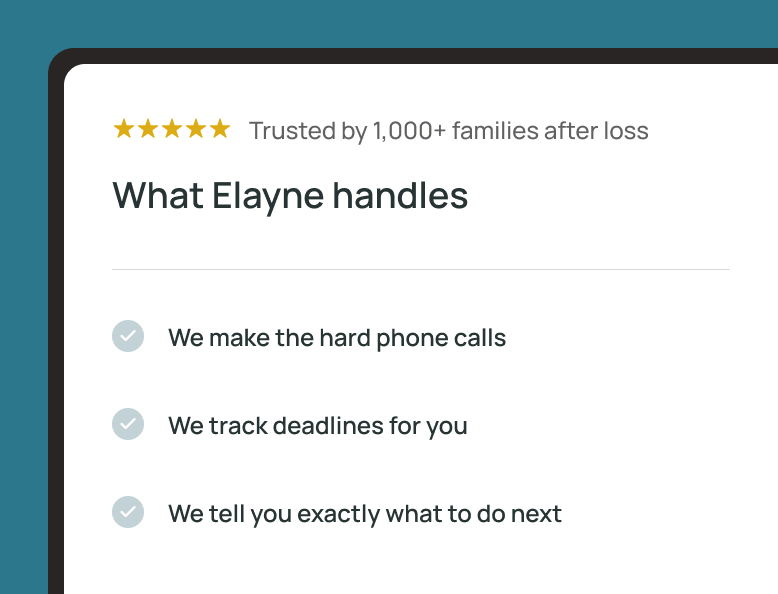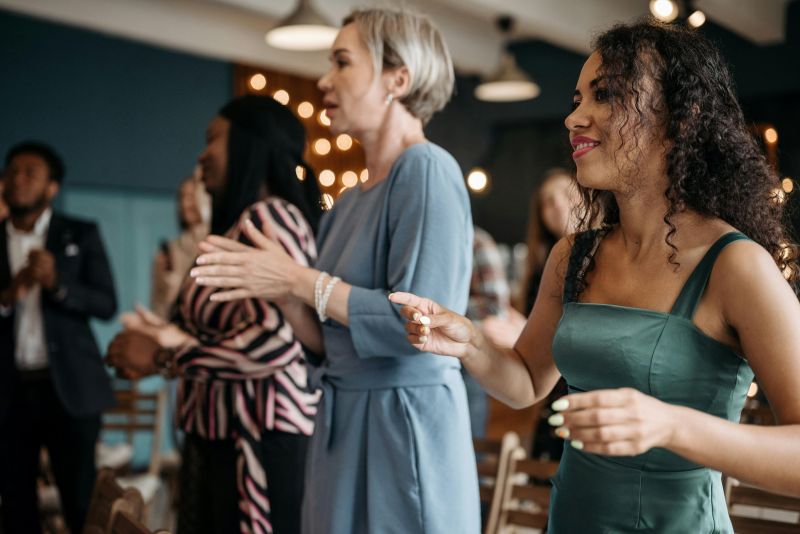Key Takeaways:
- Widow support groups offer emotional connection and healing after the loss of a spouse.
- You can find grief groups through local hospitals, religious institutions, nonprofits, and online platforms.
- Both local and national organizations provide tailored support options for different ages, identities, and needs.
{{blog-cta-admin}}
Losing a spouse can feel like the ground has shifted beneath you, leaving you emotionally isolated and unsure of how to move forward. While grief is deeply personal and varies from one individual to the next, support groups can provide a lifeline. A widow support group offers a safe, understanding space where you can connect with others navigating a similar journey. This guide will help you learn how to find a widow support group, explore different types of grief groups, and know what to expect when you attend.
1. What Is a Widow Support Group?
A widow support group is a gathering of individuals who have lost a spouse or partner. These groups can be formal or informal, professionally facilitated or peer-led, and vary in structure. Common elements include:
- Peer support from people who understand the unique pain of losing a life partner.
- Guided discussions on grief, coping strategies, and emotional healing.
- Social meetups that offer companionship and reduce feelings of isolation.
Whether it’s a structured program or a casual coffee gathering, widow support groups offer an environment of empathy, encouragement, and shared healing.
2. Benefits of Joining a Widow Grief Group
Joining a grief group can be a vital part of the healing process. The benefits include:
- Emotional support from others who truly “get it.”
- Validation of your feelings—you’ll learn that what you’re experiencing is normal and okay.
- Encouragement to rebuild your life, identity, and sense of purpose.
- Tips and tools to navigate anniversaries, holidays, and life’s milestones without your spouse.
Even just listening to others share can be comforting, reminding you that you’re not alone in your grief.
3. Where to Find a Widow Support Group Near You
If you're wondering where to find grief groups near you, start with the following local resources:
- Hospitals and hospices: Many offer bereavement support groups or can refer you to one.
- Community health clinics and senior centers: Often host or know of widow grief groups.
- Libraries and community bulletin boards: Check for posted events or flyers.
- Religious institutions: Churches, synagogues, and mosques often host faith-based bereavement support groups.
Even a simple call to a local funeral home can connect you with trusted community resources.
4. Online Support Groups and Forums for Widows
If attending in person isn’t possible or comfortable, online widow support groups offer valuable alternatives:
- Zoom-based grief groups run by therapists, nonprofits, or peer networks.
- Online forums like Grieving.com or Reddit’s r/widowers provide around-the-clock connection.
- Facebook groups: Some great ones are the Young Widows Group and Widow and Widower Support Group.
- Meetup.com: Many virtual grief groups are listed here, often organized by age, interest, or location.
Online groups are especially helpful for those in rural areas or with limited mobility or transportation.
5. National Organizations That Offer Grief Support
Several well-established organizations offer widow support programs nationally:
- GriefShare
A Christian-based program with over 15,000 locations across the U.S. - Soaring Spirits International
Offers programs like Camp Widow®, virtual forums, and regional meetups for widows of all ages. - The Compassionate Friends
Focuses on families grieving the loss of a child but also supports widowed parents. - Modern Widows Club
Empowers widows to lead full lives through mentorship, leadership development, and connection.
6. Choosing the Right Support Group for You
Not every widow grief group will be the right fit, and that’s okay. Consider:
- Your comfort level: Do you prefer a faith-based group, or a secular one? Do you want a peer-led circle or a therapist-led session?
- Shared life stages: Some groups cater to young widows, widowed parents, or LGBTQ+ spouses.
- Format: Decide whether you want a drop-in group or a structured, time-limited series.
The right group will help you feel safe, supported, and seen.
7. What to Expect When Attending a Grief Group
Your first session may feel emotional or even intimidating, but most people find comfort quickly. Here’s what to expect:
- Introductions and ground rules about respect, confidentiality, and sharing.
- No pressure to speak—you can listen until you’re ready to contribute.
- Guided topics like coping with loneliness, guilt, or identity after loss.
These meetings are meant to nurture, not overwhelm. Go at your own pace.
{{blog-cta-admin}}
FAQs
Q1: Are widow support groups free to attend?
Many are free or donation-based, especially those offered by hospitals, nonprofits, or religious organizations. Some therapist-led groups may charge a fee.
Q2: What if I don’t feel comfortable sharing in a group?
That’s perfectly okay. Many people listen for weeks before speaking. Participation is always voluntary.
Q3: Can I join a group if I’ve been widowed for many years?
Yes—grief doesn’t follow a timeline. Many groups welcome widows at all stages of their journey.
Q4: How do I know if a support group is right for me?
Try one or two different options. You’ll know you’ve found the right one when you feel safe, heard, and supported.
Figuring out how to find a widow support group can feel overwhelming when you’re already in pain, but you don’t have to face grief alone. Whether you choose a local bereavement support meeting, a national program, or an online widow support group, help is out there. These spaces can offer companionship, hope, and healing as you navigate life after loss. When you’re ready, reach out—your community is waiting.












































